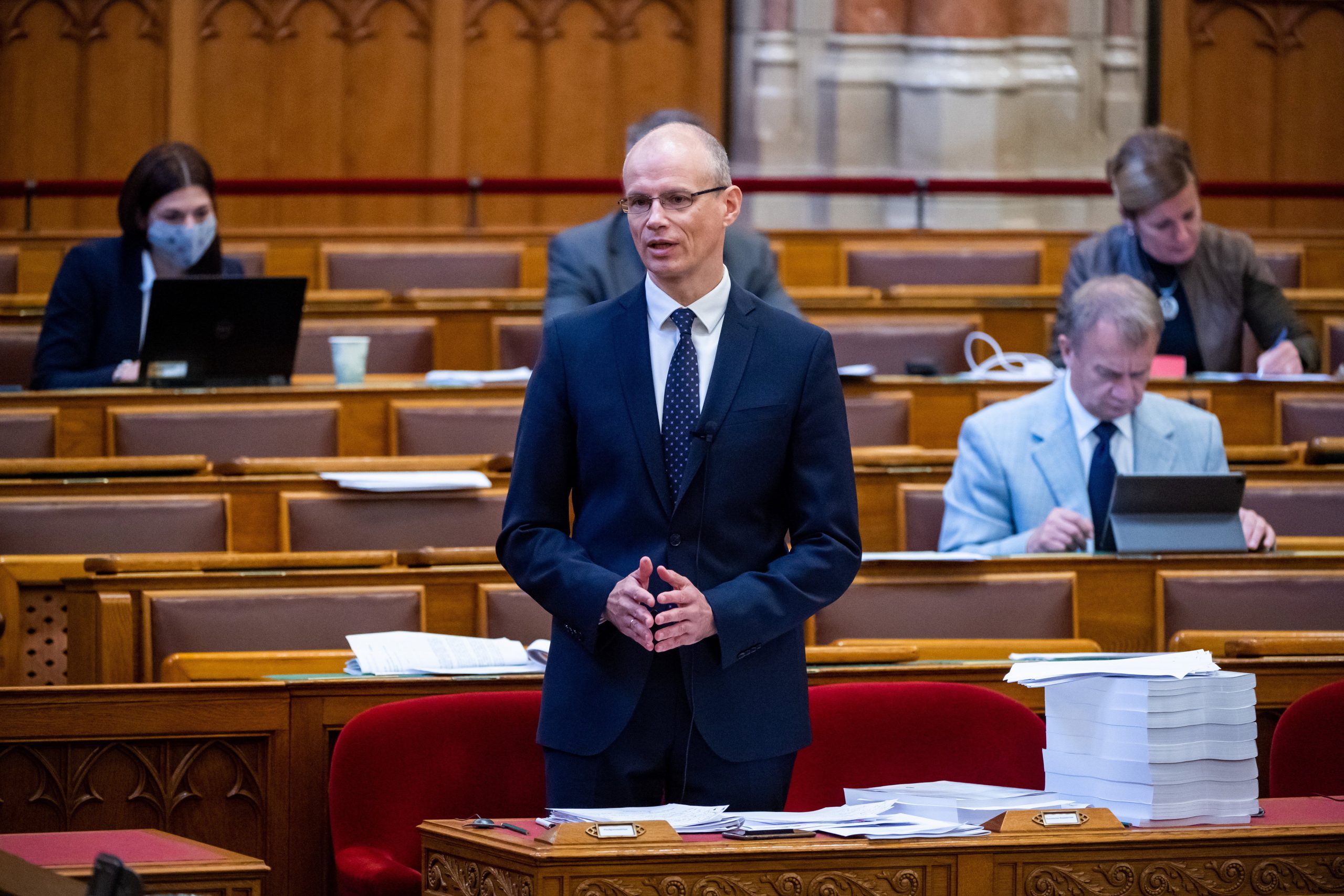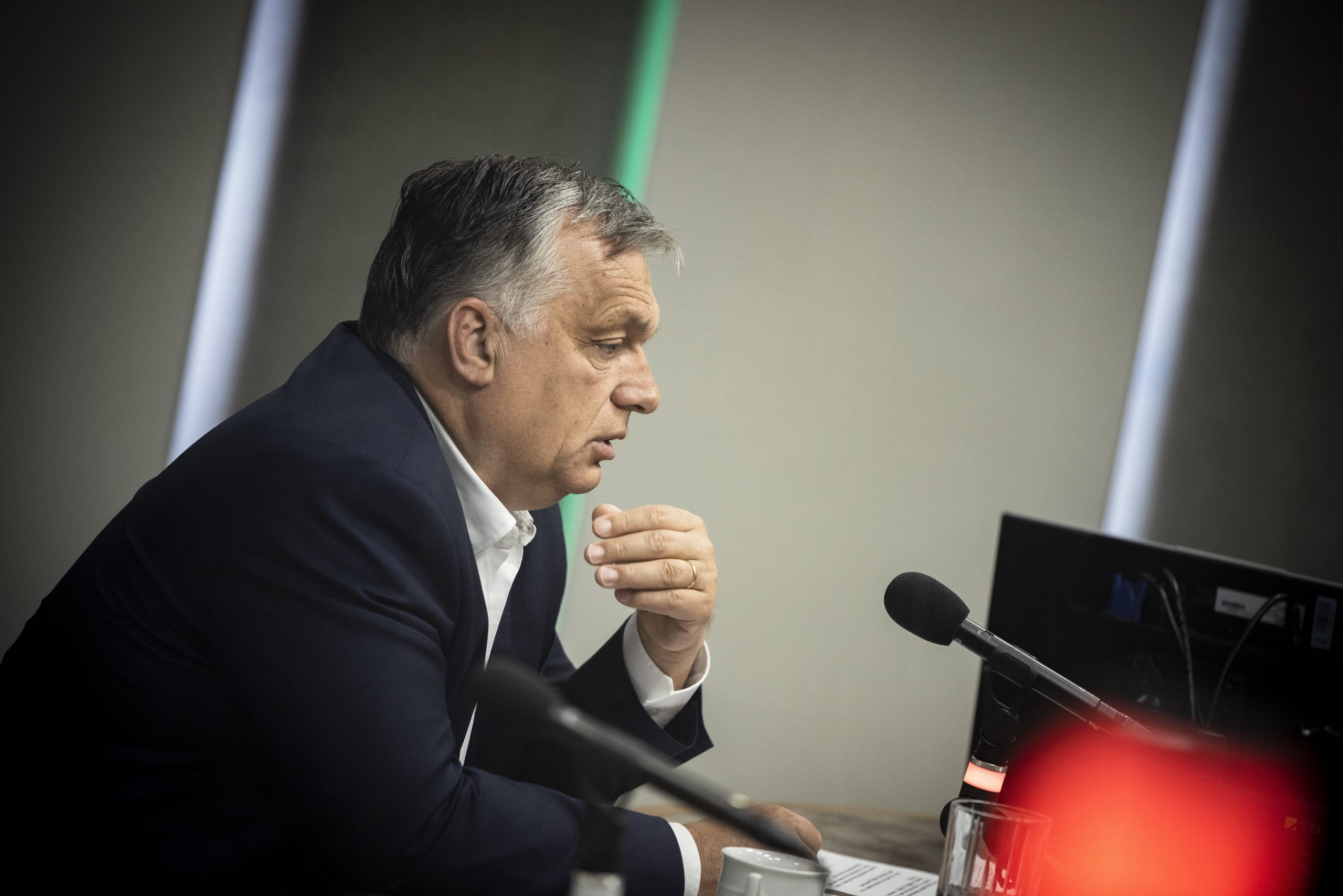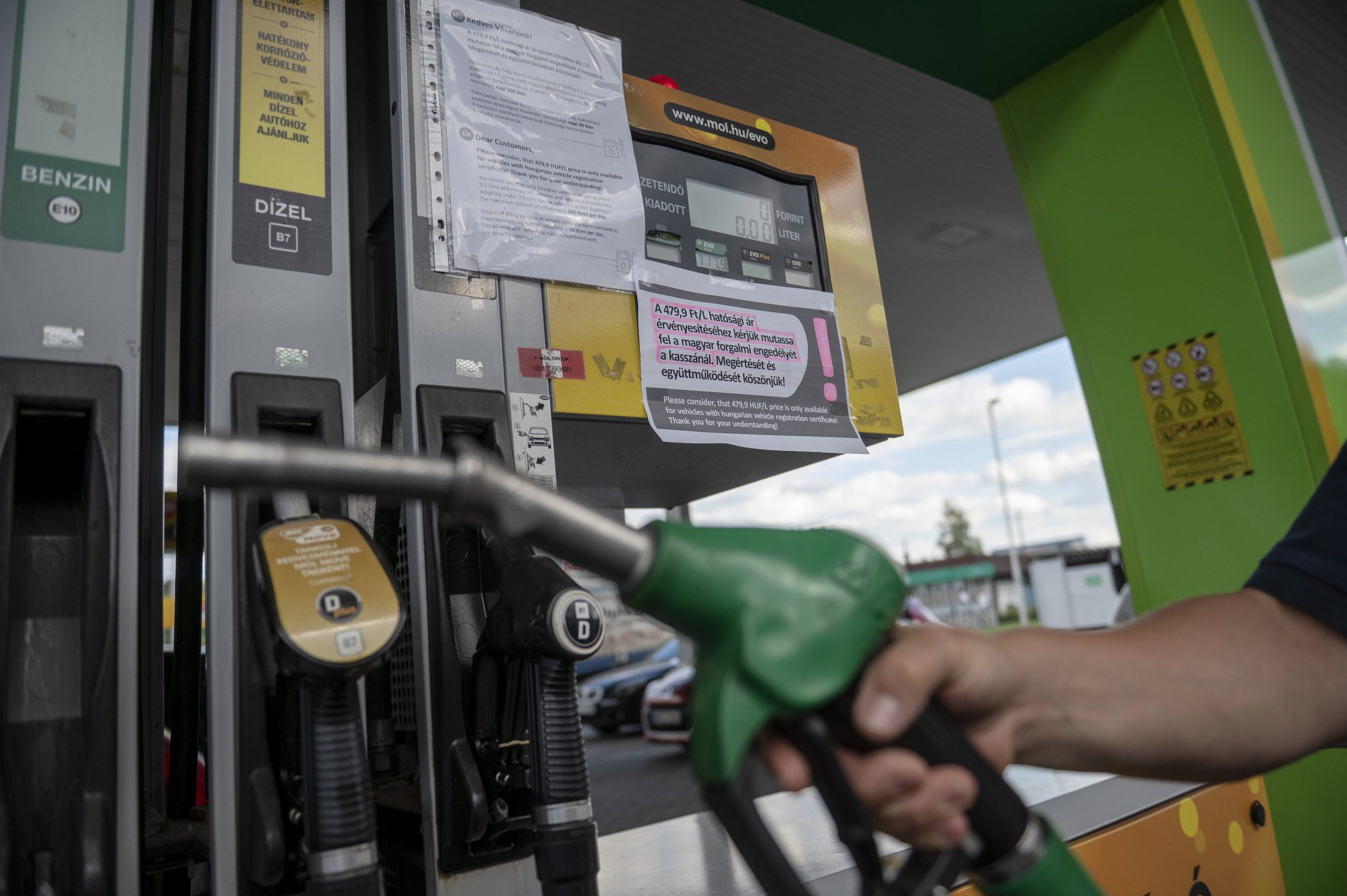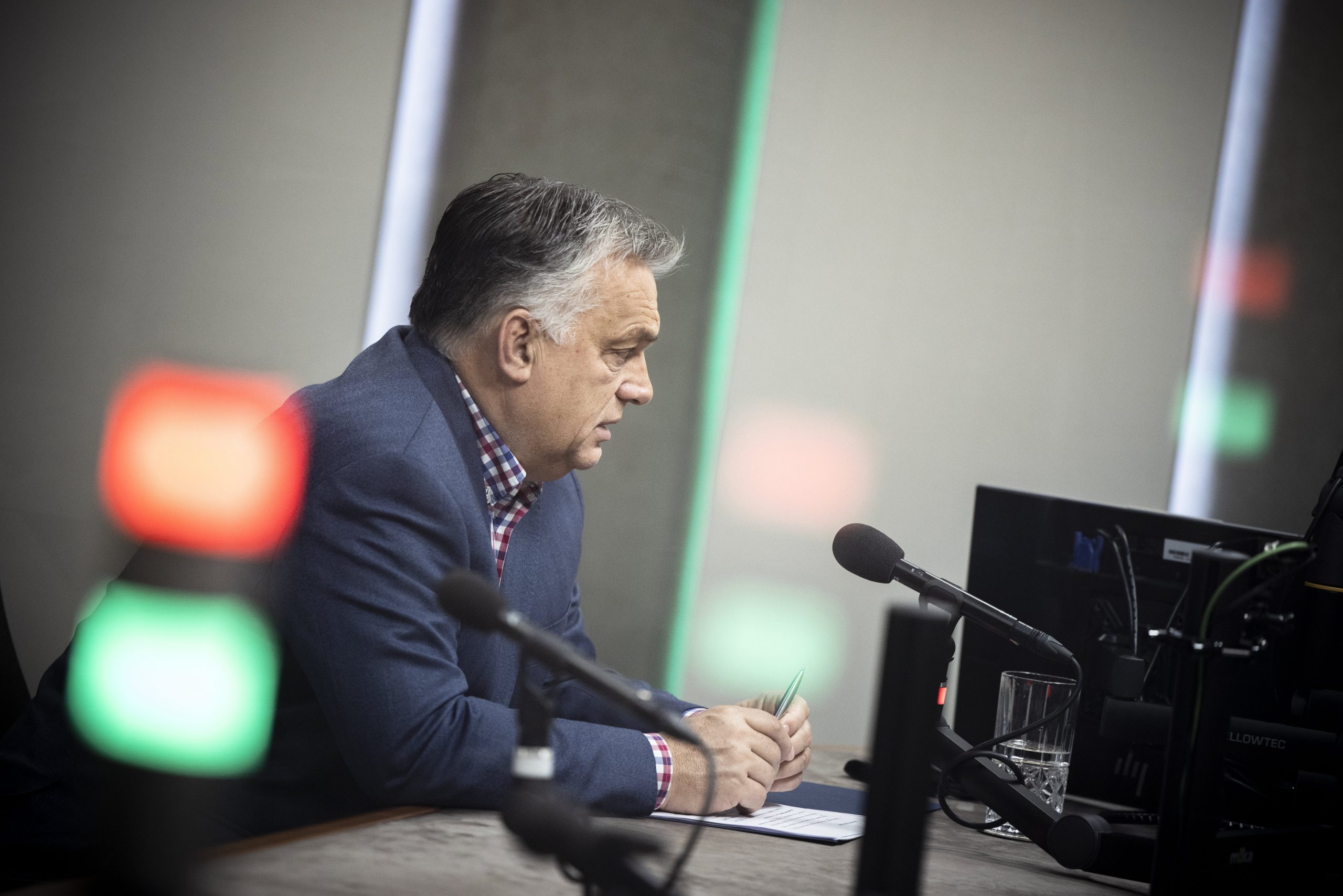
The budget is also creating a 170 billion forint reserve to "cushion against unforeseen developments," Péter Benő Banai, state secretary from the finance ministry said.Continue reading

The government has drawn up the 2023 budget with a view to handling both war inflation and the economic crisis, Prime Minister Viktor Orbán told public radio in an interview on Friday.
The war is likely to be protracted, Orbán said, adding that 2023 would be full of “uncertainty and anxiety”, and the world would be “tormented by the war and its economic fallout”.
He said that whereas Hungarians would not be dragged into the war, it would be impossible not to feel its consequences in the form of inflation and an economic crisis.
Orbán pledged to protect the value of pensions and ensure full employment, while he said the budget would protect the government’s family support system and caps on household utility bills. The prime minister said a decree containing the detailed rules regarding utility bills will be published in the next couple of days, and around 100,000 small businesses will still enjoy low-cost energy supplies thanks to the cap.

The budget is also creating a 170 billion forint reserve to "cushion against unforeseen developments," Péter Benő Banai, state secretary from the finance ministry said.Continue reading
He said that two special allocations have been created in the budget, one dedicated to defense so that the army can act if required, while the other concerns price caps with a view to protecting living standards for families.
Ministers in charge of the economy reckon the price caps are keeping a 5-6 percent lid on inflation, which is now running at 10 percent. Hopefully, price caps can be extended beyond their current July 1 expiry, but such measures must be handled with caution, he said, adding that economy officials would submit their proposals to the cabinet for consideration.
“It all depends on the war, because if there is a war, then there is war inflation,” he said. “War is destructive and inflation is destructive. If there is peace, then we can withdraw these measures sooner, but if there is war, then we will not be able to withdraw them — or only very slowly,” he added.
At the same time, Orbán said that as long as the European Union was “financing the war situation”, the war would be protracted and inflation would continue to grow.
“The simplest way to reduce war inflation is to have peace,” Orbán said, adding that the Hungarian government was almost the only one in Europe talking about the need for peace instead of sanctions and war.
The EU must sooner or later change its strategy regarding this issue because if a gas embargo is introduced after the oil embargo, it will destroy the entire European economy, he said.
Orbán said it was obvious that certain business circles had a vested interest in the war, and they were symbolized by financier George Soros, “who openly talks about the need to extend the war”, he added.
“They are warmongers; they want to profit from the war, while Europe is going to ruin,” he said.
Meanwhile, in connection with a demand by the European Commission that Hungary suspend “discriminatory fuel prices” against cars with foreign number plates, Orbán said: “An extraordinary situation justifies extraordinary measures, and the European Union must also understand this.”

Thierry Breton, the EU's internal market commissioner, said that the EC reserves the right to launch urgent infringement proceedings which can ultimately lead to court action against Hungary and possible fines.Continue reading
He said he was asking the EU to acknowledge that there is an emergency and that extraordinary measures may be needed in countries closer to the war zone such as “differentiating between number plates and vehicles based on nationality”.
Whereas the whole concept of the EU is based on uniformity in some areas and not differentiating on a national basis — and this was “right in peacetime” — it was also true that “Brussels is farther away from the Ukrainian border than Hungary” and inflation was higher in those parts of Europe that are geographically closer to Ukraine, he said.
But “Brussels is further away from the Ukrainian border than Hungary” and inflation most hits European countries closer to Ukraine, Orbán said. “Here we have an extraordinary situation” and “in such cases there is freedom and, I think, an obligation to deviate from the general rules … otherwise we wouldn’t be able to protect the interests of Hungarians”, he said.
Without the cap on fuel prices at the pump, prices would rise to 700-900 forints (EUR 1.8-2.3) per liter with a knock-on effect on the price of other products, he said.
Orbán said he was asking the EU to acknowledge that there is an emergency, and that extraordinary measures may be needed in countries closer to the war zone such as “differentiating between number plates and vehicles based on nationality”.
Commenting on press reports that the European Commission was seeking to impose import taxes on Russian piped oil, Orbán said he did not believe the commission would “reinterpret an oil embargo agreement after the fact…”
In the debate on the embargo, “Hungary fought hard” and “achieved its goal”, Orbán noted.
Concerning windfall taxes, Orbán said: “It is a war situation and families must not be made to pay its price.” Big companies would have to bear a larger-than-usual part of the public burden, he said, but “in two or three years’ time, depending on the war, they will see that the Hungarian economy, renewed in its structure, is one of the most competitive in Europe and this will reopen opportunities for them”, the prime minister said.

A liberal news site predicts that the newly announced special taxes will trigger an infringement procedure by the European Commission. Pro-government commentators, on the other hand, lambast the left-wing opposition for ‘taking the side of big corporations.’Continue reading
On another subject, Orbán said a proposal by EU Commissioner Frans Timmermans aimed at introducing a carbon emissions tax was a “insane idea”, and insisted that large polluters should pay for the green transformation of the European economy rather than citizens.
Featured photo by Zoltán Fischer/PM’s Press Office/MTI
Array
(
[1536x1536] => Array
(
[width] => 1536
[height] => 1536
[crop] =>
)
[2048x2048] => Array
(
[width] => 2048
[height] => 2048
[crop] =>
)
)